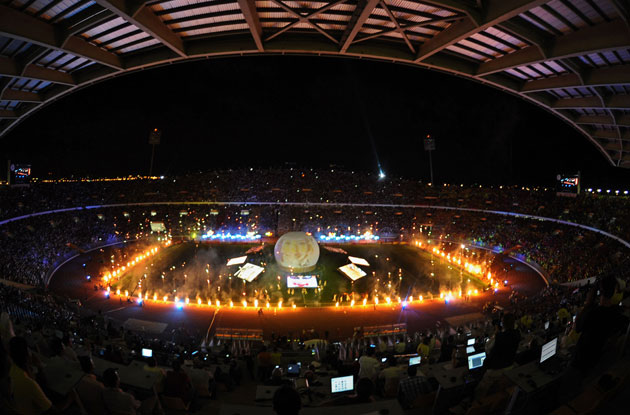Amr Talaat, the Minister of Communications and Information Technology, and Nevine El-Qabbaj, the Minister of Social Solidarity, discussed the mechanisms to support the digitization of the Egyptian Geographic Society and its preparation for the upcoming International Geographic Conference scheduled for 2025.
They visited the headquarters of the Egyptian Geographic Society, the oldest geographic society outside of Europe and the Americas.
The Egyptian Geographic Society is one of the most important geographic scientific entities, not only at the Arab or regional level but also globally. It has made significant scientific contributions and intellectual outputs that enriched geographic scientific life in the past. Now, it plays a role in Egypt’s current geoinformatics development by digitizing and enhancing the state’s capabilities in technological informational mapping. This has geopolitical, practical, and heritage significance.
During the visit, the ministers discussed the support mechanisms for this heritage and informational entity to restore its central role in geospatial information. This is part of the urgent need to restore the building, enhance its capabilities, and strengthen the human resources with young competencies possessing skills for the practical development and modernization of society. They also discussed ways to secure financial resources, in addition to the digital transformation and information technology required by society to document and secure its scientific and geographic wealth in the long term.
The ministers also explored ways to support the society in light of Egypt hosting the themed conference organized by the International Geographical Union in 2025 in collaboration with the Egyptian Geographic Society. This follows President Abdel Fattah Al-Sisi’s approval to host the conference, commemorating the centenary of the twelfth International Union conference held in Cairo in 1925—the first international geographic conference outside of Europe.
The Minister of Communications emphasized that the Egyptian Geographic Society possesses original and rare collections acquired over a long history. Preserving them from damage and loss requires digitization techniques, followed by making them accessible to a larger number of beneficiaries and enthusiasts. A complete inventory of the society’s collections, including books and maps, will be conducted to determine the best methods for digitization. The digitized materials will be made available on Egypt’s digital heritage portal for internet users, aiming to preserve Egypt’s cultural leadership and heritage and disseminate its rich culture to people worldwide.
The Minister of Social Solidarity affirmed the ministry’s responsibility to support scientific, artistic, and heritage societies. This plays a pivotal role in preserving Egypt’s soft power that reinforces the country’s culture and history.
During the visit, the ministers inspected the historic building, which houses four main sections, including the ethnographic museum with its four halls containing important heritage artefacts. The library holds many significant heritage books in Arabic and other languages, as well as important encyclopedias such as the Description of Egypt encyclopedia. Other sections include scientific journals and research papers, and a section for maps and atlases containing over 12,500 maps and around 600 atlases. There are also rare maps, including the French campaign atlas and the 1928 Egyptian national atlas, acquired through valuable gifts from Egypt’s rulers, princes, and national figures.
The Egyptian Geographic Society is approximately 150 years old, established by Khedive Ismail in 1875. He supported it with material and moral means at that time, providing it with generous gifts of books, furniture, equipment, and presents. He chaired it due to its scientific importance at that time. The Egyptian society is the ninth geographical society globally and the first outside of Europe and the Americas.




